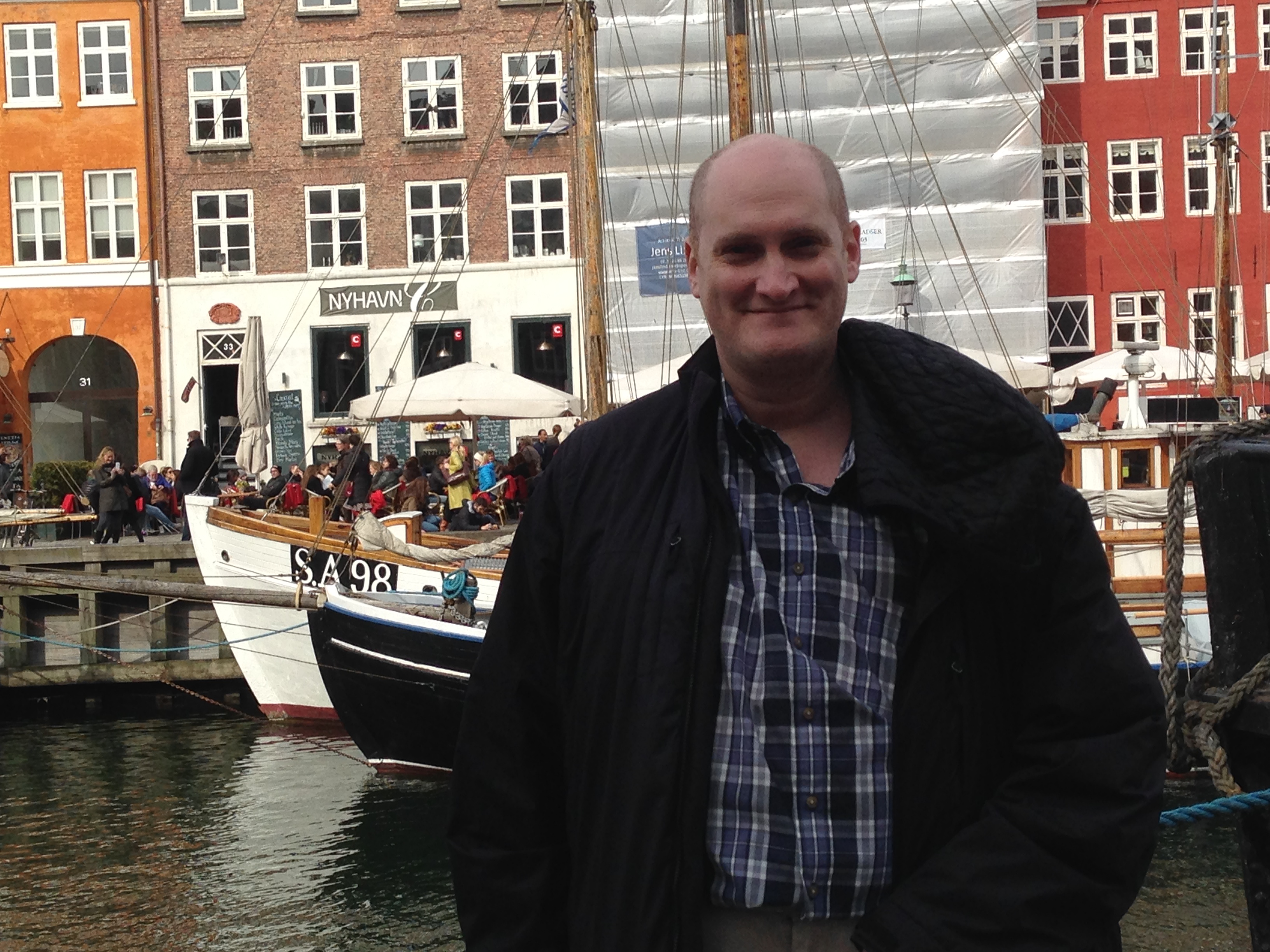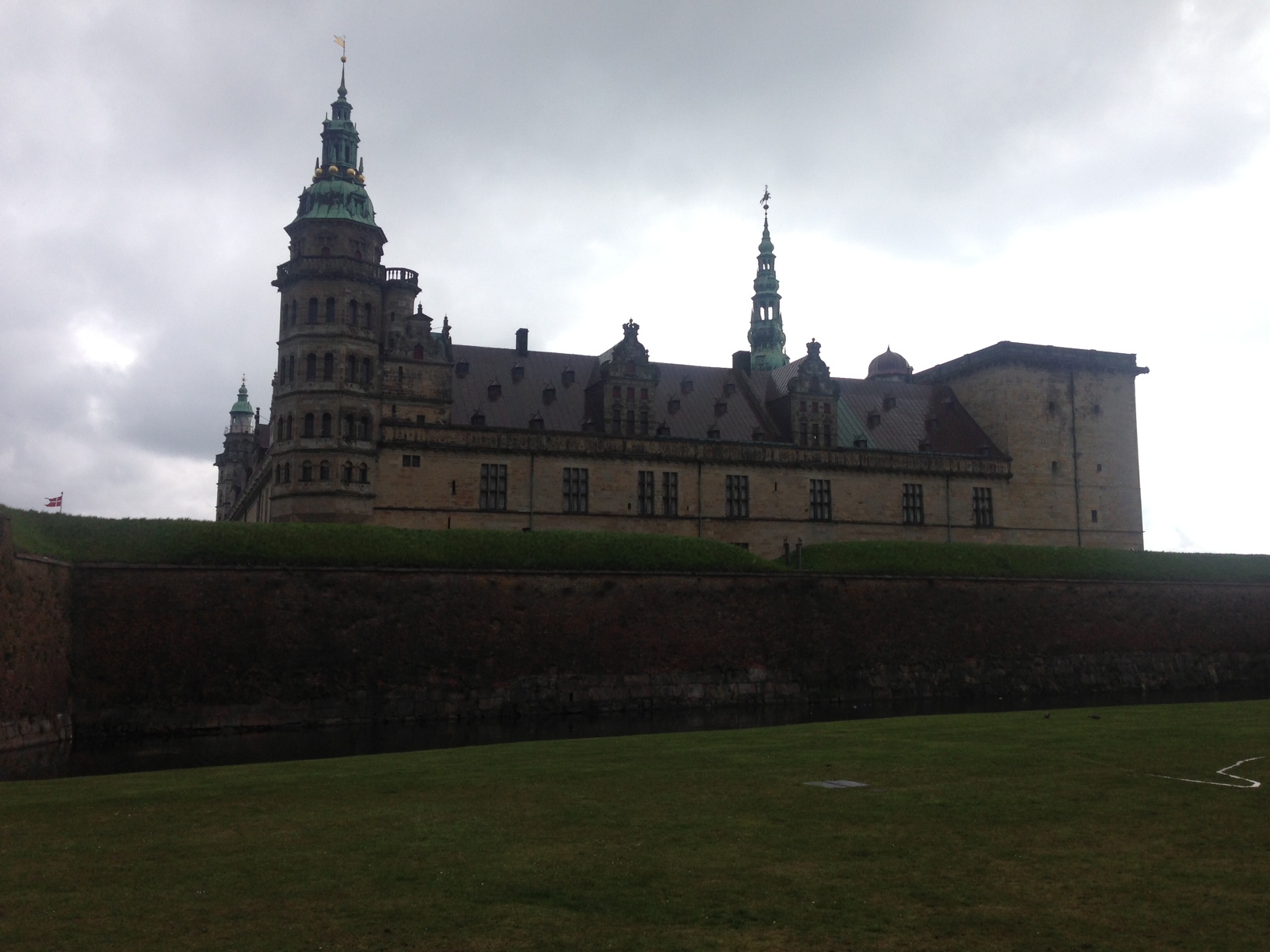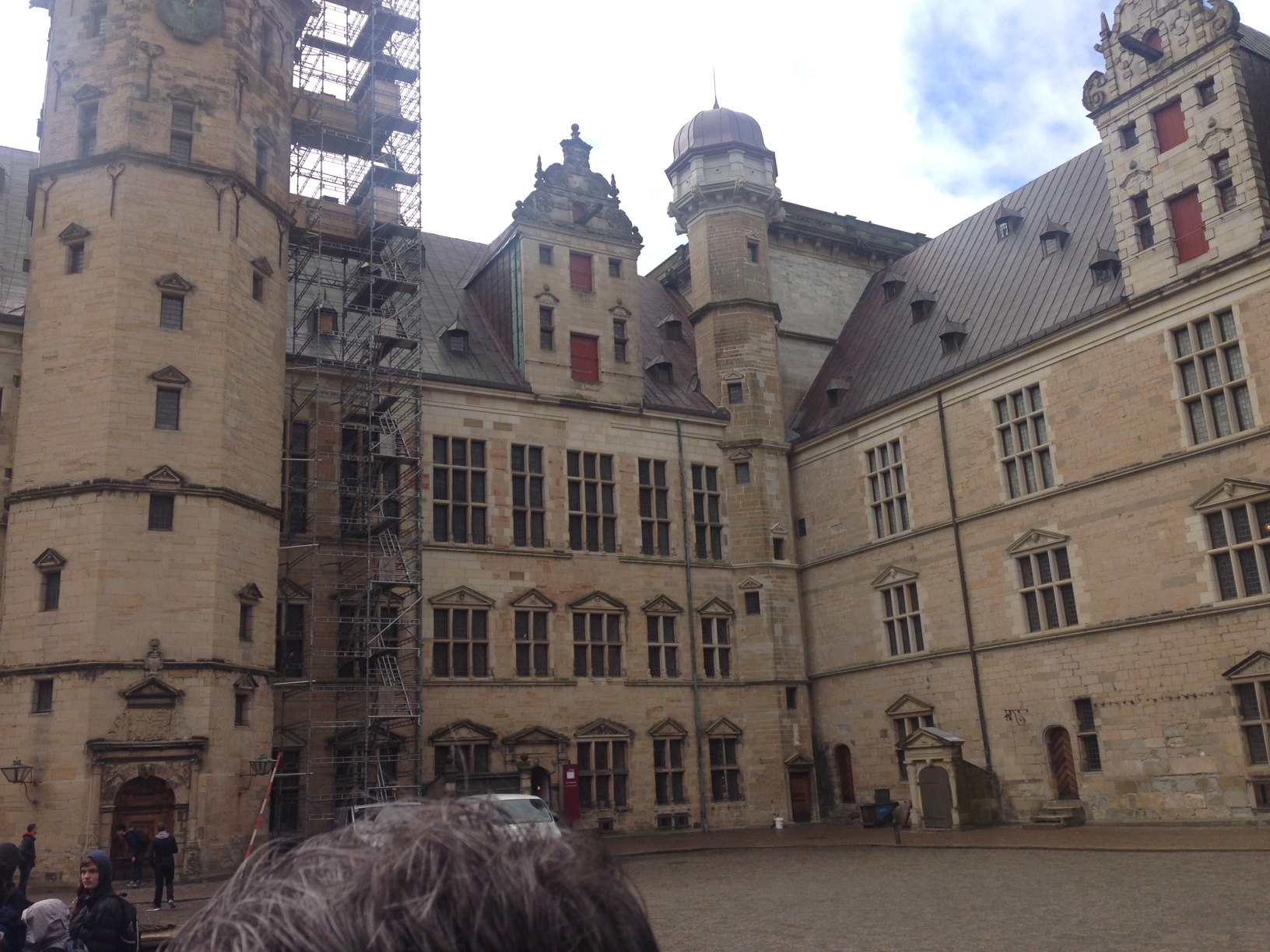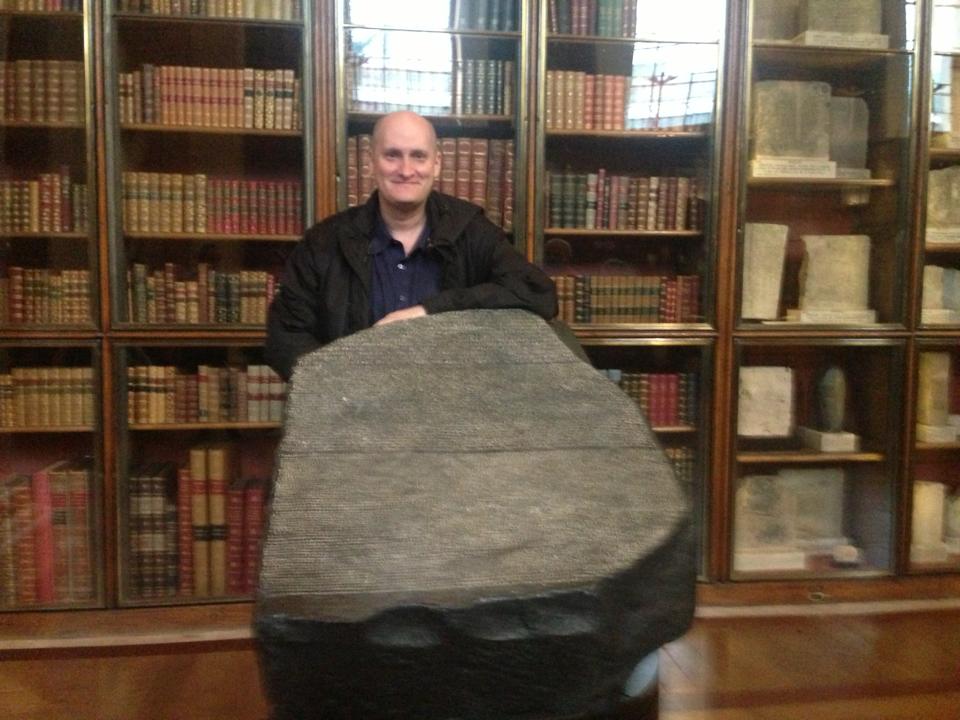In a NYC Shakespeare season filled with a Macbeth here and a Midsummer there, with two productions of Romeo and Juliet running and another two Kings Lear on the horizon, it would be hard for a single production to stand out as the fairest of them all. Nevertheless, I was looking forward to seeing Mark Rylance play Richard III in the currently running production at the Belasco Theatre with a higher degree of anticipation than any of the others. Richard III is my favorite play, and I love Rylance as an actor. I first saw him about 20 years ago playing Henry V in New York and then Benedick in London shortly after. He and I may not agree on who wrote these words, but I’m always glad to hear him speak them.
My anticipation had some extra time to build, as the actors do their pre-show preparations in full view of the audience. Some audience members were seated on the stage, which evoked the feeling of the Globe. The actors changed into costumes from Shakespeare’s time (not Richard’s) and the musical entertainment seemed Elizabethan as well. So when the show began, and Richard’s opening monologue was given in a presentational style, it seemed to fit with the concept they were going for.
Once Rylance began his winter-of-our-discontenting, I was hit by a sense of deja vu, before realizing that I had seen Rylance give this speech before. He delivers the same monologue playing Burbage in Anonymous. But this was a very different delivery than the one he gave in the film. Here, Rylance delivers Richard’s speech in broadly comical tones and with full interaction of the audience. When we laughed at his lines, he’d stop and laugh along with us, appreciative that we found the humor. He chummed it up with the audience members in the on-stage rows. And he was having so much fun, that we almost forgot that he was about to set up his brother to be murdered.
Can you play Richard III as a comedy? Sure. Many of Richard’s antics, as written, are way over the top, and his chutzpah in several scenes is absolutely breathtaking. I think you have to laugh at some of the more outrageous moments. And the choice allowed Rylance to truly revel in the most delicious moments of Richard’s glory, which provides some of the fun of the play. Richard becomes a Puck figure, that trickster devil who tempts mortals to their doom for his own increase. The play does work on that level, and elements of it can be found in any production.
The problem is that if you only play it as a broad presentational comedy, then it becomes a different play, potentially a good play, but one vastly inferior to the one that Shakespeare wrote. Rylance plays a very jocular casual-sounding Richard, and it doesn’t work. It’s not like the natural-sounding language of Joss Whedon’s Much Ado, but rather a presentation of the play as a shared joke with the audience. So, Richard isn’t Richard, but an actor playing a role. In the beginning, he knows the plots he’s laid are going to work – it’s in the script – so he barely needs to put any effort into getting there. And so, the inductions are not so dangerous. Later in the play, when he knows he’s going to lose, the presentation of the lines is more serious, but the outcome is just as sure and there still are no stakes. We end up watching a pageant, and not a play. It is merely a shadow puppet production of Richard.
And this matters, because the fact that Shakespeare’s Richard finds his own cutthroat machinations so funny is part of the evil of his character. And when I watch a good production of this play, I have the experience of a charismatic villain seducing me with his charm by making me feel like I’m on the inside of a momentous historical moment. Shakespeare makes me root for the bad guy. Who do I get to root for in this production? An actor playing a role, mugging for the audience, and not really seeming to care about how the plot progresses? I end up rooting for intermission.
So we get a stammering, mumbling Richard, with his back to the audience half the time, throwing his lines away and uttering his best asides under his breath. Actors meander about the stage with no sense of purpose, and Richard himself seems like he’s barely paying attention.
It was an all-male cast, which put the actors playing women in a very tight spot. If they played up the humor too much, it would play as a drag show, but if they played their parts too seriously, they’d be mismatched with the lead. Instead, they all ended up playing a kind of introspective sadness that plays as feminine without being too Monty Python.
It was disappointing that so much effort went into the costumes, music, set, and marketing for the show, and so little attention was paid to the direction. But Tim Carroll’s flat production felt more like an amateur reading group or high school production than Shakespeare on Broadway. Put simply, the play was not well articulated, and that’s the worst thing I can say about a production.
On the positive side, the lines played for comedy were actually funny. Kurt Egyiawan was a standout doubling as the Duchess of York and Richmond. I liked the final fight concept, and the dance at the end. And I always enjoy hearing Shakespeare’s words spoken out loud. But none of these are enough for me to recommend this show to you.
The same company is concurrently performing Twelfth Night, and I actually have much higher hopes for that production. Rylance will be playing Olivia. Stephen Fry, grievously underused in this production as an audience member sitting five rows ahead of me, will be playing Malvolio. Some of the elements that didn’t work for me in this production may be better suited to that play. In fact, I kind of got the sense that it was Twelfth Night where all of the attention was focused, and Richard III was merely slapped together as an afterthought.
May I live in hope? Watch this space.








